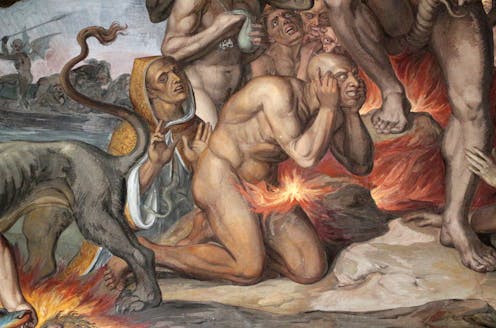Jesmyn Ward's Let Us Descend confronts a history beyond the ken of storytelling
- Written by Julian Murphet, Jury Professor of English and Language and Literature, University of Adelaide

It is worth asking whether there are topics beyond the capacity of the novel. Are there subjects so immense in historical scope and in depths of human suffering that a form engineered to tackle but a bare handful of lives in sufficient detail cannot possibly accommodate them?
Warfare, with its punctual campaigns and political manoeuvrings, may indeed prove the limit beyond which the novel capitulates and the older form of the epic resurfaces.
And beyond that?
Review: Let Us Descend – Jesmyn Ward (Scribner)
New World slavery is beyond the ken of storytelling. As a direct corollary of that most unconscionable human catastrophe – the genocide of the Amerindians (130 million killed in 200 years) – the Atlantic slave trade is a critical component of the most important, most untellable story in the history of our species: the “conquest of the New World” by European powers.
Over 400 years, almost 13 million people[1] were sold, shipped and bred so they could work to death on colonial plantations in South, Central and North America.
Such numbers stagger and incapacitate the imagination. Narrative, without which we fail to integrate our collective experience, is disabled by evil on this systematic scale. Slavery, as poet M. NourbeSe Philip[2] writes, is “the story that simultaneously cannot be told, must be told, and will never be told.”
Even Dante[3], the greatest imagination ever to dedicate itself to the analysis and evaluation of human depravity, had no room in his packed inferno for the architects, agents and profiteers of modern chattel slavery. It is doubtful whether he could have contemplated this army of slobbering devils without immediately dropping dead in horror.
And yet they laid the foundations for our world; their legacy most powerfully shapes the present and threatens to determine the future. With no circle in hell reserved for them, their statues and namesakes are everywhere around us. They are legion.
Read more: Jean Toomer’s Cane at 100: the 'everlasting song' that defined the Harlem Renaissance[4]

















